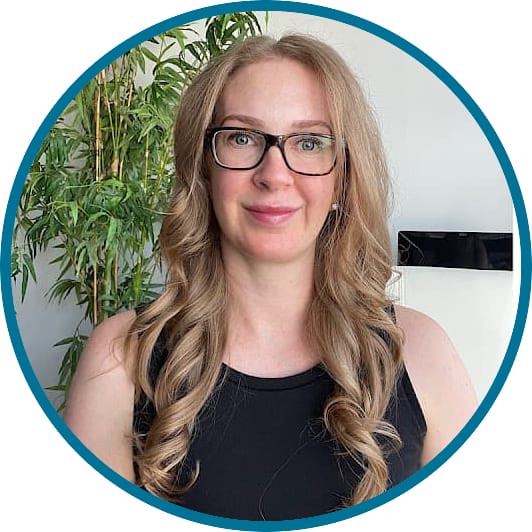These days, most college students take online classes at some point in their education journey. And it's easy to see why — online learning offers flexibility, affordability, and convenience.
But how can you find the best online college to earn your degree? First, it's important to choose an accredited institution. Accredited online colleges offer high-quality degrees that are reviewed by accrediting agencies.
Then, research factors that are important to you, like tuition cost, student services, and graduation rates. Check out our list of the best accredited online colleges to start your search.
Popular Online Degrees
Top 10 Accredited Online Colleges and Universities
We use trusted sources like
Peterson's Data and
the National Center for Education Statistics to inform the data for these schools.
#1 Best Accredited Online Colleges and Universities of 2024
Southern New Hampshire University
Manchester, NH - 4 years
- Online + Campus
Cost per Credit:
In-State | $330
Out-of-State | $330
Credits to Graduate: 120
Southern New Hampshire University stands out for its generous transfer credit policy, career-focused programs, and flexible schedules. You’ll benefit from a flat tuition rate regardless of residency and over 150 online program options at this private university.
You can apply up to 90 transfer credits toward a 120-credit bachelor’s degree. All courses use an asynchronous format, which means no set class times to fit into your schedule. Explore programs in healthcare, business, technology, and the social sciences to find the best fit for your educational goals.
#2 Best Accredited Online Colleges and Universities of 2024
University of Florida
Gainesville, FL - 4 years
- Online + Campus
Cost per Credit:
In-State | $129
Out-of-State | $553
Credits to Graduate: 120
You’ll join an alumni network of over 400,000 Gators as a graduate of University of Florida. UF Online offers a convenient learning format. You can choose from 25 online majors, with options in anthropology, health education, and public relations. And you can customize your degree by completing one of 11 minors.
Gators take courses on an asynchronous schedule, which means you’ll watch recorded lectures and complete assignments on your schedule. And you’ll work with an academic advisor to stay on track throughout your degree.
#3 Best Accredited Online Colleges and Universities of 2024
Florida International University
Miami, FL - 4 years
- Online + Campus
Cost per Credit:
In-State | $153
Out-of-State | $567
Credits to Graduate: 120
A public university based in Miami, Florida International University enrolls nearly 54,000 students. You can join an alumni network of over 200,000 by earning your degree in a fully online format at FIU Online.
FIU offers highly interactive, flexible courses. You can log in at any time from anywhere to make progress toward your degree.
Choose from bachelor's programs in accounting, biology, computer science, or criminal justice. You can also earn your master’s degree online. You’ll benefit from one of the most affordable tuition rates for in-state students.
#4 Best Accredited Online Colleges and Universities of 2024
San Diego State University
San Diego, CA - 4 years
- Online + Campus
Cost per Credit:
In-State | $492-$552
Out-of-State | $492-552
Credits to Graduate: 120
San Diego State University offers degree completion programs crafted by instructional design experts. And you’ll learn from the same expert instructors who teach on campus. At SDSU Global, you can finish your bachelor’s degree online in a self-paced format.
You’ll complete courses on your schedule, with major options in business, hospitality, STEM, and education. The private institution also offers online master’s degrees in educational leadership, public health, and computer engineering. If you prefer a hybrid format, SDSU also offers several options that blend online and on-campus learning.
#5 Best Accredited Online Colleges and Universities of 2024
Purdue University Global
West Lafayette, IN - 4 years
- Online + Campus
Cost per Credit:
In-State | $371
Out-of-State | $371
Credits to Graduate: 180
At this Indiana public university, terms start every month, meaning you can start classes sooner. Purdue Global offers over 175 online programs, and you can test out undergrad programs for three weeks without any cost.
On average, Purdue online students spend $15,000 to earn a bachelor’s degree, graduating in an average of two years.
Generous transfer credit policies mean undergrads meet 46% of their bachelor’s credits with transfer courses. And you don’t need to submit standardized test scores for undergraduate admissions.
#6 Best Accredited Online Colleges and Universities of 2024
Pennsylvania State University
University Park, PA - 4 years
- Online + Campus
Cost per Credit:
In-State | $626-$671
Out-of-State | $626-$671
Credits to Graduate: 120
Pennsylvania’s top-ranked public university also offers online degrees. At the Pennsylvania State University, you can choose from over 175 online programs offered by Penn State World Campus.
Over 40 bachelor’s programs are offered online, including agribusiness management, turfgrass management, cybersecurity, functional data analytics, and health policy and administration.
Penn State prioritizes accessibility, with advisors to support students throughout their academic journey. And you’ll qualify for over 40 scholarships offered by the school as a distance learner.
#7 Best Accredited Online Colleges and Universities of 2024
University of Minnesota-Twin Cities
Minneapolis, MN - 4 years
- Online + Campus
Cost per Credit:
In-State | $442-$491
Out-of-State | $442-$700
Credits to Graduate: 120
Minnesota’s flagship public university offers multiple online degrees. Through the University of Minnesota Twin Cities, you can earn a graduate degree in business taxation, dental hygiene education, or nursing. The top-ranked Carlson School of Management also offers an online MBA.
If you’re looking for an undergraduate degree, consider UMN Online, which connects degree-seekers with over 100 online programs offered by the University of Minnesota system. Most programs charge a flat tuition rate, regardless of state residency.
#8 Best Accredited Online Colleges and Universities of 2024
University of Maryland Global Campus
Adelphi, MD - 4 years
- Online
Cost per Credit:
In-State | $318
Out-of-State | $499
Credits to Graduate: 120
At the University of Maryland Global Campus, you can choose from 125 online programs, including over 30 bachelor’s programs. The public university’s programs emphasize career-ready skills and incorporate experiential learning opportunities.
UMGC helps students save money with generous transfer credit policies and over 100 scholarships. You can transfer up to 90 credits toward a bachelor’s degree based on your prior education and professional experience. And nearly every course uses free textbooks to save you money.
#9 Best Accredited Online Colleges and Universities of 2024
Eastern New Mexico University
Portales, NM - 4 years
- Online + Campus
Cost per Credit:
In-State | $175
Out-of-State | $257
Credits to Graduate: 120
Eastern New Mexico University is one of the most affordable online colleges, whether you’re paying in-state or out-of-state tuition. ENMU offers more than 30 programs in fields like business, nursing, education, and information systems.
You can also earn a degree in nursing, social work, criminal justice, or psychology. Or study computer science or engineering technology with a focus on renewable energy.
In addition to fully online programs with flexible schedules, ENMU students receive specialized library services and academic tutoring support.
#10 Best Accredited Online Colleges and Universities of 2024
The University of West Florida
Pensacola, FL - 4 years
- Online + Campus
Cost per Credit:
In-State | $219
Out-of-State | $648
Credits to Graduate: 120
Pensacola’s public university offers online degrees at an affordable price. The University of West Florida charges just $219 per credit for Florida residents.
UWF Online offers undergraduate and graduate degrees. Earn your bachelor’s in accounting or clinical lab sciences to prepare for in-demand careers. Or pursue a general studies major to maximize your transfer credits.
You’ll benefit from a collaborative learning environment that emphasizes real-world projects. Online students receive tutoring services, technical support, and career services.
How We Rank Schools
Accredited Schools Online uses a custom ranking system to evaluate schools on their quality, affordability, and reputation.
We rank schools using factors like graduation rate, admission rate, tuition costs, financial aid, and program offerings. All our ranked schools hold institutional accreditation.
Learn more about how we create school rankings on our methodology page.
Did You Know...
- In 2021, 61% of undergraduates in the U.S. took at least one online course, according to the National Center for Education Statistics (NCES).
- 28% of all undergraduates exclusively took online courses in fall 2021.
- 71% of all graduate students took at least one online course in fall 2020.
- Around 4 in 5 colleges offered online courses or degree programs in 2018-19.
- Public institutions are more likely to offer online courses and degrees than private institutions.
Is Online College Worth It?
Is an online college worth it? The answer will vary for each student. Ultimately, your budget, goals, and schedule can influence whether an online college is the right choice for you.
I love being able to meet with people and teachers from all over the globe and country,
said Charlotte Amy Rose, an online master's student at the University of Wales Trinity Saint David.
Online College May Be Worth It If...
-
You need a flexible schedule. -
You're looking to save money. -
You want to complete coursework on your own time. -
You want to be flexible with location and travel while in school. -
You need accessible learning.
Online College May Not Be Worth It If...
-
You want the classic "college experience." -
You prefer in-person instruction. -
You're pursuing a labwork-heavy degree. -
You're easily distracted at home. -
You value peer-to-peer interaction.
Types of Online Degrees
You can earn pretty much any degree online these days. Online colleges and universities offer a variety of undergraduate degrees and graduate programs.
You'll also find programs that can help you complete a degree you've already started. You can earn a two-year associate degree online or finish a bachelor's degree. At the graduate level, you can earn a master's degree or doctorate online.
In addition to degrees, many online colleges offer certificate programs. These focused programs typically take less than a year to complete, and you can earn an undergraduate or graduate certificate.
Learn more about the types of degrees you can earn online:
Top Online College Programs
Choosing the Best Online College for You
The number of online colleges available to you can be overwhelming. Follow these five tips to help you choose the best online university for you.
1. Define Your Goals
Your career and educational goals will inform the best degree program for you. Consider your budget, how much time you'd like to spend on school, what skills and knowledge you wish to graduate with, and what you'd like to do when you finish your degree.
2. Choose a Major
Knowing what you plan to major in can guide your choice for an online college. Once you've chosen a major, you can compare specific degree programs. Consider things like the kinds of courses a program offers, the program structure, and networking opportunities.
If you haven't chosen a major yet, try looking for online colleges with various majors that interest you. Alternatively, you could complete an online associate degree in general studies and choose a more focused major for a bachelor's degree later on.
3. Research Online Colleges
Don't apply to the first online school you come across. Instead, research a variety of colleges to find the right one for you. Compile a list of online universities that offer your major or another feature you value.
You can compare online colleges on features like:
- Scheduling flexibility
- Programs offered
- Student resources
- Course formats
- Faculty reputation and experience
- Career services
- Alumni network
For example, maybe you prefer synchronous learning, where you'll take classes in real-time with other students through online video services like Zoom. Or, maybe you prefer an asynchronous class structure, which lets you finish coursework on your own time with pre-recorded lectures.
4. Confirm Accreditation
Before applying to an online school, check that it is accredited. Most colleges list their accreditation status and accrediting agency on their website. You can also look on the accrediting agency's website to double-check that a school is listed there.
Accreditation is particularly important for online schools to ensure high academic standards. Accreditation is also important for reputation purposes, as employers may consider your school's accreditation status when you apply for jobs.
5. Determine Costs
Many online schools don't charge students differently based on where they live; rather, there's just one tuition price for all online students.
Online programs at traditional public colleges differentiate between in-state and out-of-state students. In these cases, choosing an online program from a public school in your state should qualify you for lower in-state tuition costs.
In Florida, for example, tuition for in-state public colleges averaged $4,541 in 2021. In New York, in-state public college tuition averaged $8,416, while the average tuition in California was $8,401.
Paying for Your Online College Degree
Like any other student, an online college student will need to budget for tuition, fees, and textbooks. Some universities also charge an additional distance learning or technology fee. And taking classes online sometimes means upgrading your technology, internet, or software.
How do students pay for online degrees? Fortunately, if you choose an accredited college, you'll qualify for many forms of financial aid.
Here are some common ways that distance learners at accredited online colleges pay for their degrees:
- FAFSA financial aid
- Employer tuition reimbursement
- Loans and grants
- Work-study programs
- Employment
Here's a breakdown of the average costs of an undergraduate and graduate degree in the U.S.
Online Colleges By State
Search the list below to learn more about accredited online colleges and universities in your state.
- Alabama
- Alaska
- Arizona
- Arkansas
- California
- Colorado
- Connecticut
- Delaware
- Florida
- Georgia
- Hawaii
- Idaho
- Illinois
- Indiana
- Iowa
- Kansas
- Kentucky
- Louisiana
- Maine
- Maryland
- Massachusetts
- Michigan
- Minnesota
- Mississippi
- Missouri
- Montana
- Nebraska
- Nevada
- New Hampshire
- New Jersey
- New Mexico
- New York
- North Carolina
- North Dakota
- Ohio
- Oklahoma
- Oregon
- Pennsylvania
- Rhode Island
- South Carolina
- South Dakota
- Tennessee
- Texas
- Utah
- Vermont
- Virginia
- Washington
- West Virginia
- Wisconsin
- Wyoming
Q&A With Real Online College Students and Grads
Q: Why did you decide to pursue an online degree?
"I wanted to be able to study, travel, and work simultaneously — not sit in a classroom at a set time each week."

— Alexandra Markin, Founder of Online Student Life
"I love the freedom of being able to study from anywhere in the country. … I also struggle with social anxiety sometimes, so knowing I have the comfort of being able to study from home allows me to feel more at ease."

— Charlotte Amy Rose, Founder of Sacred Footprints
"I decided to continue my education online mainly because I wanted to move out of state and needed the flexibility to finish my degree while also starting my family."

— Alison Hamar, College Counselor and Schools Manager at Transizion
Q: In your opinion, what is the value of earning a degree online?
"Flexibility. If you need to take classes when you have time and don't have to abide by a strict schedule, then online classes can be a great fit. You do have to be a self-motivated student, and online education isn't for everyone."

— Alison H.
"With an online degree, you can be there for your family, friends, or anything you want in life when you need to be. You don't have to choose between that and a three-hour lecture."

— Alexandra M.
"Earning a degree online offers more flexibility. I can work more easily around it as I don't need to factor in travel time. I feel you are more focused too. You can spend more time actually studying and learning rather than traveling to and from university."

— Charlotte A. R.
Q: What is your biggest piece of advice to students considering an online college?
"I would highly recommend getting involved with the university, even if you are online. There are still so many extracurricular activities and courses you can join, which is a great way to meet people on the same course or just like-minded people you can share your experience with."

— Charlotte A. R.
"I would consider how much time you have to dedicate to school, if you can and will hold yourself accountable, and if flexibility is a necessity in your life. … In many ways online school is harder, but if you are motivated and driven to finish your degree and need the flexibility, then I would go for it."

— Alison H.
"You need to know your learning style and what works best for you. … Try a few online courses first before you commit to an online degree. The format of online learning isn't for everyone."

— Alexandra M.
Frequently Asked Questions About Accredited Online Colleges and Universities
What's the best online college?
The best online colleges hold accreditation, offer support services, and have a track record of student success. Look at data like graduation rate, job placements, and faculty qualifications to find the best online school. It's also important to choose a program that fits your interests and goals.
Are online degrees respected?
Yes, online degrees from accredited institutions are respected. Employers hire candidates with online degrees, and you can get into graduate school with an online bachelor's degree. Also, your diploma won't state that your degree was earned online.
However, make sure to choose an accredited online school because these institutions meet high standards for academic quality.
What's the easiest online college to get into?
Several online colleges admit the majority of students who apply, including some schools with a 100% acceptance rate. Two-year online colleges also typically accept the majority of applicants.
When applying to online colleges, research the acceptance rate to find the easiest college to get into.
What is the quickest degree to get online?
The quickest degree to get online is an associate degree or an accelerated master's degree. Associate degrees typically take two years, while you can earn a master's degree in as little as one year. Students with transfer credits can also graduate in less time.
How do I choose an online degree program?
Before applying to online programs, consider your learning style, interests, budget, and career goals. The right online program will meet your needs and fit your budget. Once you've chosen a field, research schools to determine which program will help you reach your goals.
Next Steps
Note: The insights on this page — excluding school descriptions — were reviewed by an independent third party compensated for their time by Accredited Schools Online. Page last reviewed December 11, 2023.


 Edited by
Edited by




